MBBS PROGRAM
Introduction
Integrated medicine is a new approach to medicine that embraces the concerns of the public and medical profession for more effective, compassionate, patient-centred medicine. Integrative medicine has been defined as healing-oriented medicine that takes account of the whole person (body, mind, and spirit), including all aspects of lifestyle. It emphasizes the therapeutic relationship and makes use of all appropriate therapies, both conventional and alternative.
The practice of integrated medicine goes beyond content, tools, and techniques to include an expanded way of viewing the physician, the patient and their work together. Therefore, in keeping with the recent trend in all of medical education to reaffirm and re-emphasize the humanistic values at the core of medicine, training in integrative medicine should incorporate philosophical perspectives in addition to a knowledge base and therapeutic skills to clearly underscore the relevance of human experience and interactions in health and medicine.
Al-Baha University Faculty of Medicine at (ABUFM) has adopted an integrated, system-based model of curriculum in order to improve student learning, comprehension, and integration of medical knowledge. This will have a strong emphasis on critical thinking, problem solving, case-based learning and evidence based clinical practice.
The didactic curriculum is organized into blocks which are framed by systems (i.e. gastroenterology, cardiovascular, respiratory, reproductive …etc). The individual blocks contain the same clinical medicine information as the traditional curriculum, such as: basic sciences, clinical skills, and diagnostic studies, study of disease states, pharmacology, and behavioral medicine.
ABUFM curriculum integrates courses and learning at three main levels:
a) Integrate the basic sciences
b) Integrate the basic medical sciences and clinical sciences
c) Integrate the study of normal structure and function with the study of abnormal, disordered structure and function.
The curriculum also addresses the other aspects of medicine, including ethical, professionalism, legal and social implications. Throughout their six years, students acquire the knowledge, skills and attitudes necessary to become competent, caring physicians.
Advantages of Integrated Curriculum
This integrated system of medical education would have several beneficial advantages over the traditional education such as:
-
The integrated curriculum encourages student teamwork and collaboration which ultimately benefits students.
-
It promotes faculty working together to create an active learning sessions; including cases, simulated patients, and problem based learning to further improve integration of medical material.
-
Increased communication and collaboration among faculty encourages sequencing the lectures in a clinical block in a logical manner. For example, a block starts with a review of basic sciences prior to learning about certain disease etiologies and treatments.
-
Overall, faculty workload is decreased and redistributed in other areas which better serve the curriculum, the students, the staff himself and as well as the community: while the faculty workload is heavy during the traditional system.
-
Student stress is decreased: students have one exam every 2-3 weeks rather than multiple overlapping exams in different courses.
Graduate attributes
Graduate attributes of MBBS program of Al-Baha Faculty of Medicine
Graduate attributes are the Knowledge, skills, attitudes, and qualities a university community agrees its students should develop during their time with the institution. These attributes include but go beyond the 24 disciplinary expertise or technical knowledge that has traditionally formed the core of most university courses. They are qualities that also prepare graduates as agents of social good in an unknown future. At the level of individual program, graduate attributes are further defined context-specifically to not only aligned with and reflect the University's graduate attributes, but the NQF, SAQF outcomes and disciplinary and health related specifications as well.
Al-Baha faculty of medicine graduate professionals should be competent in five roles
- Health care practitioner
Graduates integrate all the graduate attribute roles, applying profession-specific knowledge, clinical skills, and professional attitudes to provide optimal, ethical, comprehensive, and patient-centered care in a plurality of health and social contexts.
- Professional
Graduates are committed to ensure the health and well-being of individuals and communities through ethical practice, profession-led self-regulation, and high personal standards of behavior.
- Communication and Collaboration
Graduates effectively facilitate the career-patient relationship and the dynamic exchanges that occur before, during and after interventions. Develop rapport, trust and ethical therapeutic relationships with patients, families, and communities from different cultural backgrounds. Participate effectively and appropriately in multicultural, interprofessional and trans professional teams, as well as teams in the community.
- Scholar
Graduates demonstrate a lifelong commitment to reflective learning as well as the creation, dissemination, application, and translation of knowledge.
- Community-Oriented
Graduate should identify the health needs of an individual patient taking into consideration his/her culture. Identify and use opportunities for health promotion and disease prevention with individuals to whom they provide care, in an ethical manner. Respond to the health needs of the communities that they serve.
Goals
The curriculum has been developed to provide learning opportunities enabling medical students to acquire fundamental knowledge, develop basic skills and appreciate principles relevant to health care in the context of the community. The six-year curriculum has been designed to achieve the following goals:
1. To provide an integrated and comprehensive medical education leading to MBBS degree through a range of learning strategies and early longitudinal clinical exposure to maximize student engagement and knowledge retention.
2. To prepare the student for medical reasoning and evidence based medical practice in the changing health care environment.
3. To prepare the student to achieve the competencies in medical knowledge, Clinical skills, Evidence-based learning, Patient care, Effective communication skills & Professionalism.
4. To develop a professional, analytical, evidence-based and ethical approach in the delivery of health care to the community.
5. Promote self-directed learning, life-long learning and research activity to function effectively in the social health care system.
6. To develop skills and attitude that facilitate development of effective and professional relationships with patients and their families and effective collaborations with other health care professionals.



